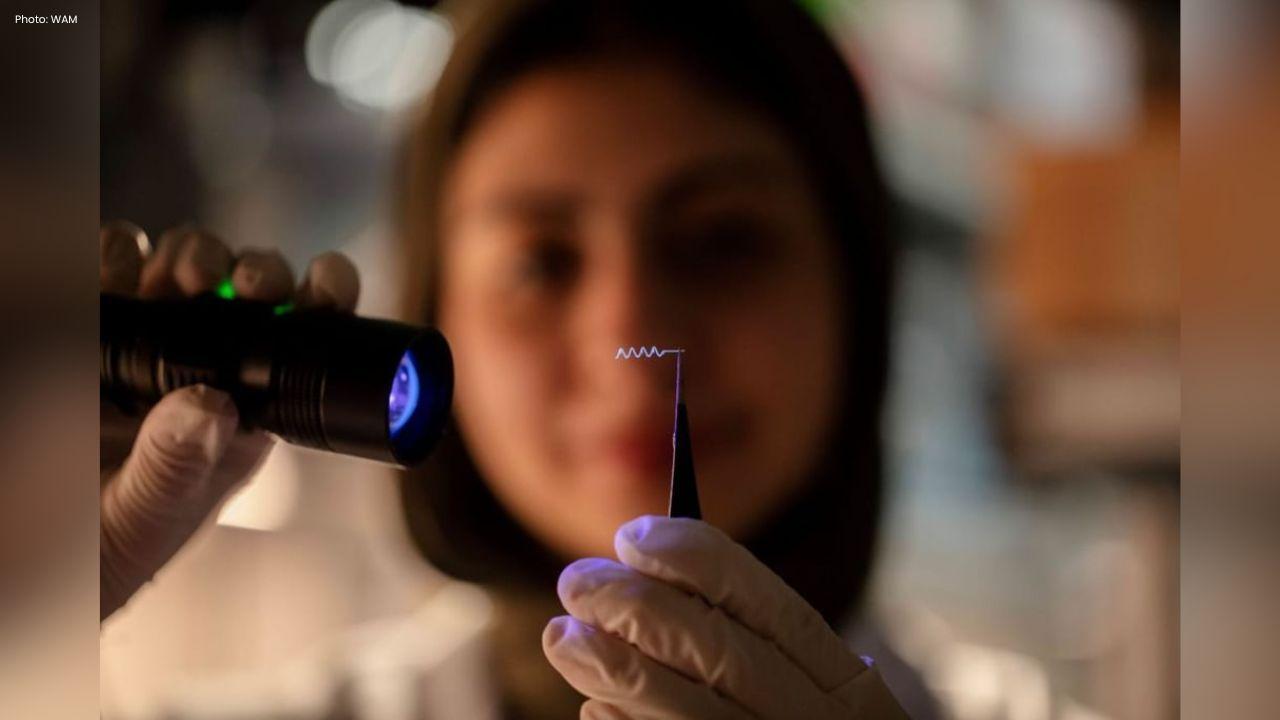
Post by : Mumtaaz Qadiri
Researchers at New York University Abu Dhabi (NYUAD) have created a new brain implant called SPIRAL, which can deliver drugs with high precision to multiple regions of the brain. The innovation opens new possibilities for treating complex neurological disorders.
SPIRAL: A Minimally Invasive Device
SPIRAL (Strategic Precision Infusion for Regional Administration of Liquid) is a thin, flexible tube designed to release medication at several points inside the brain. Unlike traditional implants, it can target larger and more complex areas while remaining small and minimally invasive.
Research Team and Leadership
The project was led by Assistant Professor of Bioengineering at NYUAD and NYU Tandon, Khalil Ramadi, along with his team. Their work focuses on improving drug delivery for neurological disorders, which often involve very specific regions of the brain.
Precision Drug Delivery
Ramadi explained that current tools are limited in targeting precise brain areas. “SPIRAL allows us to reach several regions at once without adding extra risk, which could change how we deliver therapy for these conditions,” he said.
Improved Design for Larger Coverage
Research assistant Batoul Khlaifat, co-lead author, highlighted the implant’s advantage. “SPIRAL solves a major problem with existing brain implants, which usually deliver drugs from just one or two points. Our device distributes drugs more evenly across larger regions safely and effectively.”
Applications in Severe Neurological Conditions
SPIRAL’s helical form, with evenly spaced outlets, can cover larger tissue volumes from a single insertion. This design is especially useful for advanced diseases like glioblastoma, where drugs need to bypass the blood-brain barrier to reach affected regions efficiently.
Potential for Advanced Therapies
Beyond drug delivery, SPIRAL could be adapted for electrical stimulation and other therapies. This makes it a versatile platform for treating conditions such as epilepsy, Parkinson’s disease, and other neurological disorders, offering hope for improved patient outcomes.
Technical Innovation and Safety
Mahmoud Elbeh, NYUAD alumnus and PhD candidate, explained that computational fluid dynamics (CFD) were used to set port diameters for equal drug flow. This ensures safe and even distribution across brain regions, enhancing the device’s effectiveness while maintaining minimal invasiveness.
Future Impact on Neurology
SPIRAL represents a major advancement in neurology and bioengineering. Its ability to deliver therapy to multiple brain regions with precision could transform treatment approaches, reduce risks, and improve outcomes for patients suffering from complex neurological conditions.
The development of SPIRAL highlights NYU Abu Dhabi’s role in pioneering medical innovations. By combining engineering expertise with clinical insight, the research team has created a tool that could redefine neurological treatment and offer new hope for patients worldwide.










Google to Invest $15 Billion in India’s AI Data Hub
Google will invest $15 billion to build a massive AI data hub in southern India, marking its largest

Gautam Gambhir Praises Shubman Gill’s Leadership Success
India’s head coach Gautam Gambhir praised Shubman Gill’s leadership after the 2-0 Test series win ov

KL Rahul Guides India to Series Win Over West Indies 2-0
India defeated West Indies by seven wickets in the second Test, sweeping the series 2-0 with KL Rahu

China Launches Shiyan-31 Test Satellite Successfully
China successfully launches Shiyan-31 satellite to test optical imaging technology, marking the 599t

Coach to Decide if Messi Plays Against Puerto Rico
Argentina coach Lionel Scaloni will decide Lionel Messi’s participation against Puerto Rico after fi

Pedri Credits Ferran Torres For Support And Guidance
Pedri highlights Ferran Torres’ support and guidance, saying strict advice and teamwork keep him mot